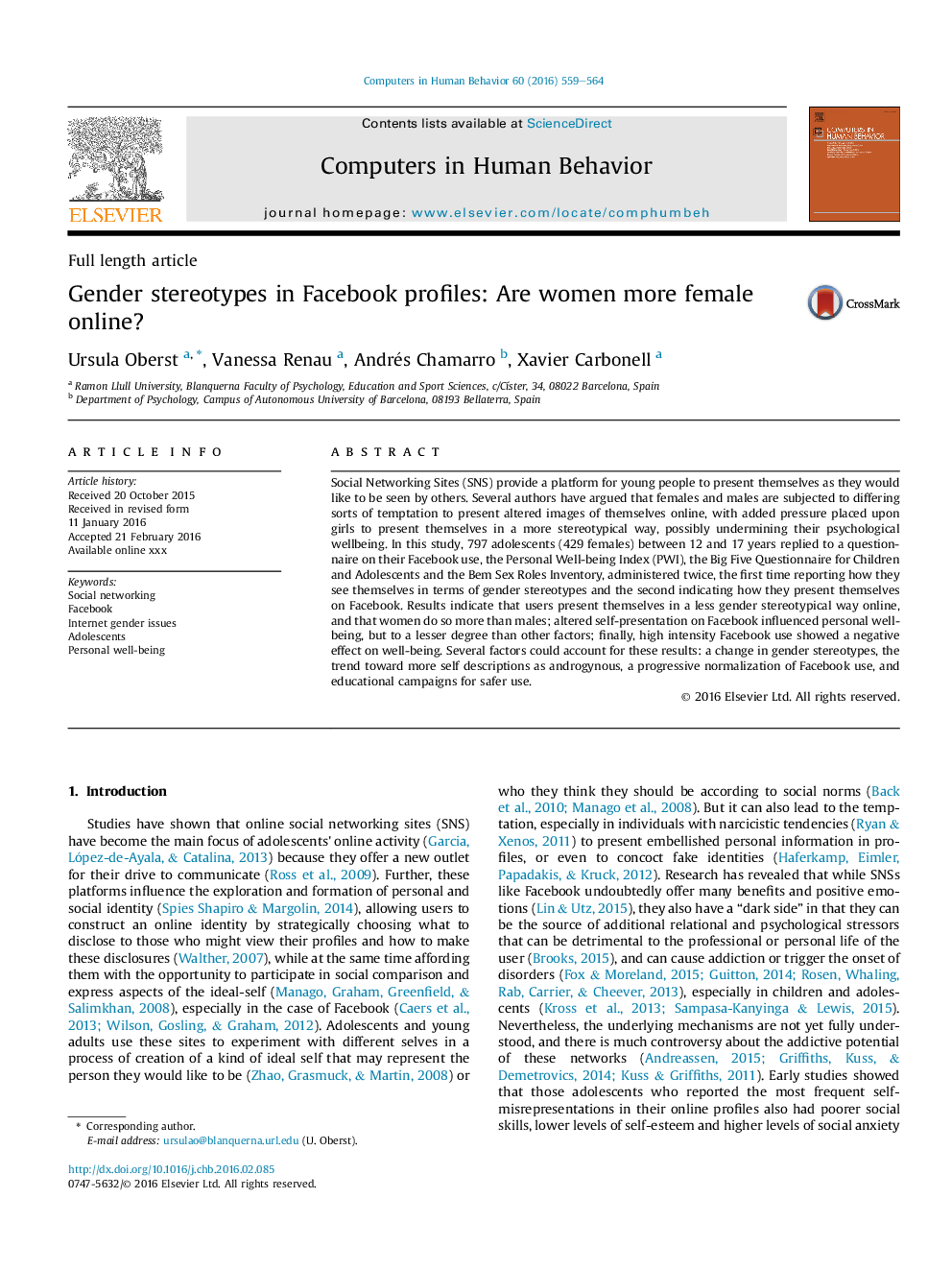| Article ID | Journal | Published Year | Pages | File Type |
|---|---|---|---|---|
| 6837336 | Computers in Human Behavior | 2016 | 6 Pages |
Abstract
Social Networking Sites (SNS) provide a platform for young people to present themselves as they would like to be seen by others. Several authors have argued that females and males are subjected to differing sorts of temptation to present altered images of themselves online, with added pressure placed upon girls to present themselves in a more stereotypical way, possibly undermining their psychological wellbeing. In this study, 797 adolescents (429 females) between 12 and 17 years replied to a questionnaire on their Facebook use, the Personal Well-being Index (PWI), the Big Five Questionnaire for Children and Adolescents and the Bem Sex Roles Inventory, administered twice, the first time reporting how they see themselves in terms of gender stereotypes and the second indicating how they present themselves on Facebook. Results indicate that users present themselves in a less gender stereotypical way online, and that women do so more than males; altered self-presentation on Facebook influenced personal well-being, but to a lesser degree than other factors; finally, high intensity Facebook use showed a negative effect on well-being. Several factors could account for these results: a change in gender stereotypes, the trend toward more self descriptions as androgynous, a progressive normalization of Facebook use, and educational campaigns for safer use.
Keywords
Related Topics
Physical Sciences and Engineering
Computer Science
Computer Science Applications
Authors
Ursula Oberst, Vanessa Renau, Andrés Chamarro, Xavier Carbonell,
